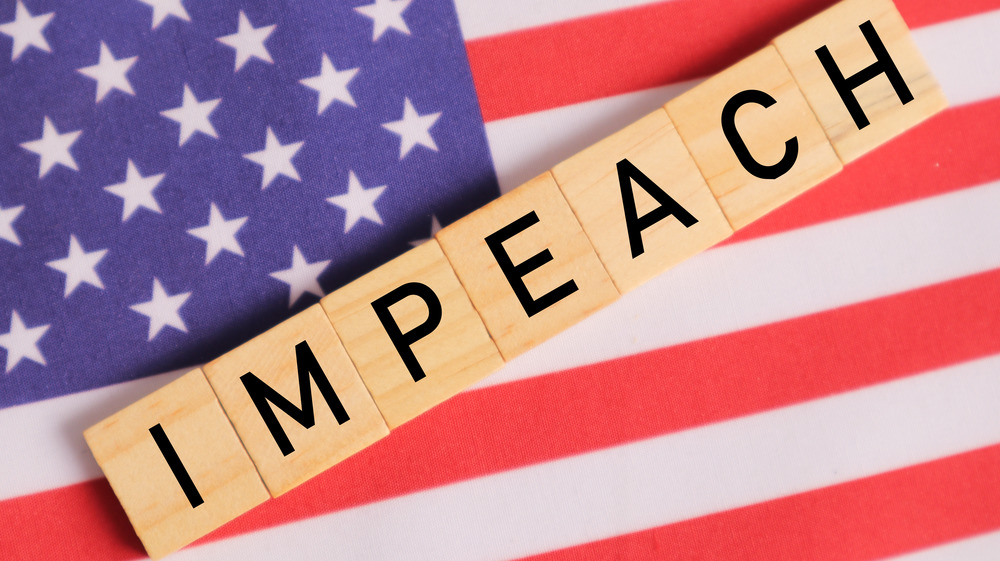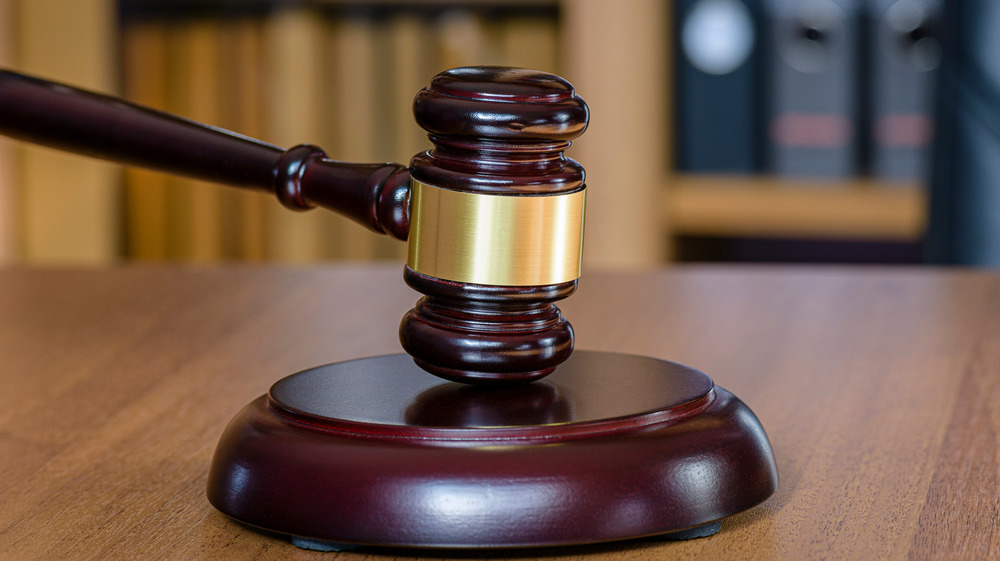These Are The Three People Who Were Barred From Serving In The US Government
Impeachments don't happen very often in the United States. Yet, when they do, rarely does it ever reach the point that the person impeached is barred from holding office ever again.
In history, there have only ever been 21 impeachments (but 20 people as Donald Trump is the first person to be impeached twice). Out of those 21 impeachments, only three people have ever been banned from office, according to the House of Representatives. These are the Judges West H. Humphreys, Robert W. Archbald, and G. Thomas Porteous Jr.
Humphreys was a district judge in Tennessee. His father was a lawyer who also became a state judge. His father also served in Congress before ultimately turning to banking. Humphreys served as the Tennessee attorney general in 1839 and was appointed a district judge in 1851, per the Tennessee Encyclopedia.
But Humphreys was impeached not for decisions he made as a judge, but rather it was his support for the secession of Southern states during the Civil War. After his state broke from the Union, Humphreys accepted a judgeship from the Confederate government.
In 1862, the Senate began impeachment proceedings against Humphreys. The seven articles of impeachment charged him with calling for secession, giving aid to an armed rebellion, conspiring with Jefferson Davis, serving as a judge for the Confederacy, and confiscating property from Andrew Johnson (who himself was impeached).
Humphreys then became the first person barred from holding office again. Afterward, he argued for prohibition.
Robert Archbald never held office again
The second person barred from office was Robert W. Archbald, who was also a judge, this time in Pennsylvania. He was appointed to the bench by several presidents beginning in 1901, explained the Constitutional Law Reporter. By 1910, he was serving in the U.S. Commerce Court as a judge.
However, this changed by 1913, when Archbald was impeached for corruption. The Morning Call reported the judge had business dealings with railroads for favorable rulings on coal land. At the time, Archbald was in the middle of issuing opinions on land to be occupied by the Erie Railroad.
During the trial, it came out that Archbald negotiated with the Erie Railroad for the purchase of the Katydid coal land for a business associate. The lawmakers also said Archbald pursued other coal areas for the railways, including the Lehigh Valley for other business partners.
Archbald took the stand during his impeachment trial, something which very few people do. He maintained that while he does have a friendly or business relationship with both coal barons and rail entrepreneurs, none of his actions were improper. He said all his interactions were above board and the people he dealt with were friends.
The Senate did not agree, and Archbald was impeached and then barred from holding office again. The vote was 68-5.
Archbald continued to maintain his innocence even after his impeachment. He died in 1926.
G. Thomas Porteous was barred in 2010
G. Thomas Porteous Jr. is the latest person to be barred from office. Appointed to the District Court of the Eastern District of Louisiana in 1994, Porteous served as a judge for 16 years. Ironically, he was appointed by Bill Clinton, who also faced impeachment.
In 2008, the Judicial Conference determined there were grounds for Porteous to be impeached. Porteous had faced bankruptcy and lost his house due to Hurricane Katrina. Over time, Porteous had accepted bribes and made false statements while under oath, reported NOLA. This wasn't the first time he was involved in a corruption investigation. At some point, he was under federal investigation for ties to a bond magnate. Most of the alleged false statements related to his bankruptcy.
The House would not take on his impeachment until 2010.
During impeachment proceedings, Porteous sued the House Impeachment Committee for violating his Fifth Amendment rights. He said he gave testimony under immunity but this was then used during the trial.
In December 2010, the Senate unanimously voted for Porteous to be impeached and barred from office. By 2011, the Louisiana Supreme Court announced Porteous had lost his license to practice law.
In the long history of the United States, impeachment has been used as a means to hopefully remove people from office. But not everyone found guilty was barred from office.


